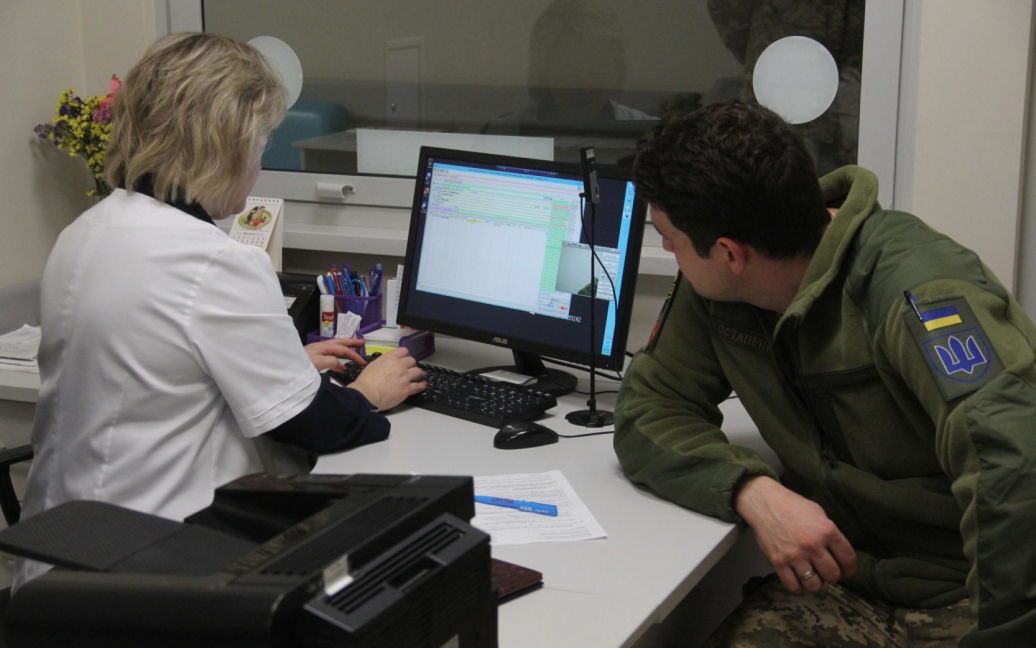What diseases are exempt from mobilization - the full list has been updated The Verkhovna Rada of Ukraine has for the eighth time extended martial law and general mobilization for another 90 days until August 11, 2024.
During this period, all men of conscription age who are found fit for military service by a military medical commission may receive mobilization orders.
However, the Order of the Ministry of Defense of Ukraine of April 27, 2024, No. 262 on the approval of Amendments to the Rules of Medical Examination of the Armed Forces of Ukraine established a list of diseases for which the issuance of medical examinations is based.
Decisions of the Military Qualification Commission on unfitness and exemption from mobilization.
So which patients are not mobilized during martial law?
The list of diseases that are exempt from mobilization is complete.
The new law on general mobilization abolished restrictions on military service.
Currently, this status is no longer valid in Ukraine.
Therefore, military medical commissions can make only two conclusions regarding fitness for military service.
1: Fit.
2. Unfit.
Therefore, within nine months from the date of promulgation of the law, a person who was in a state of limited physical strength must re-examine the military medical commission, on the basis of which a new conclusion will be drawn up.
The military medical examination determines the fitness for military service based on the state of health of servicemen, persons liable for military service, conscripts, and reservists.
You can be exempted from mobilization if you have a disease on the list of diseases.
Infectious and parasitic diseases are exempt from mobilization.
Persons recognized as completely unfit for military service are defined as follows: - Progressive active tuberculosis with lung tissue damage.
- Progressive active tuberculosis of other organs (except for the lungs).
- Severe viral hepatitis with significant impairment of physical functions that is difficult to treat.
- HIV stage IV with immunodecompensation.
Detected sexually transmitted diseases (syphilis, gonorrhea, chlamydia, trichomoniasis, etc.) are the basis for making a decision on temporary incompatibility and the need for treatment with HLA.
In case of confirmation of other infectious or parasitic diseases, the MPC may recognize a conscript as partially fit for military service or postpone his call-up for treatment.
Neoplasms excluded from mobilization.
Tumor diseases may be grounds for disqualification only in serious cases with significant impairment of physical function.
- Tumor diseases of the lymphatic tissue, blood and adjacent tissues with significant changes in blood composition (lymphogranulomatosis, myeloma, leukemia, myelodysplastic syndromes, etc.)
- Benign tumors of any localization with significant impairment of physical functions.
Persons liable for military service who, after surgical treatment, cytostatic or radiation therapy of tumors, are recognized as temporarily incapacitated and require treatment, leave or dismissal.
Persons liable for military service diagnosed with a neoplasm (malignant or benign) who received special treatment during martial law and are in long-term stable remission will be eligible.
Diseases of the blood and hematopoietic organs Exempt from mobilization Conscripts with diseases of the blood and hematopoietic organs are mostly qualified, limitedly qualified or unfit.
Persons liable for military service who are temporarily unfit for military service due to acute illnesses or surgical treatment of certain diseases of the blood, hematopoietic organs and immune system.
Only those who are diagnosed with rapid progression of symptoms and decompensation (with significant impairment of the function of organs and systems) become completely incapacitated.
The list of diseases of the blood and hematopoietic organs includes:
- Anemia of any kind.
- Blood clotting disorders.
- Purpura (idiopathic, thrombocytopenic).
- Bleeding (increased bleeding).
- Agranulocytosis.
- Diseases of the spleen.
- Disorders of the immune system (all types of sarcoidosis, immune disorders).
Diseases of the endocrine system, nutrition and metabolism are excluded from mobilization.
Pathology, metabolic disorders, and metabolic disorders of the endocrine system may be grounds for non-compliance only if there are significant functional disorders.
Men with moderate disabilities are recognized as fit to serve in military support units, military commis-sariats and joint ventures, higher education institutions, training centers, institutions, medical units, logistics, communications, operational support and security.
Also, persons liable for military service may be recognized as temporarily unfit if they have conditions after acute illnesses or surgical treatment for diseases of the endocrine system and equated conditions.
Such diseases include: - thyroid diseases (except for neoplasms); - diabetes mellitus and other glucose regulation disorders; - pathologies of other endocrine glands; - exhaustion due to malnutrition; - obesity; - functional hyperbilirubinemia; - lipomatosis, etc.
Mental and behavioral disorders that exempt from mobilization A person liable for military service is recognized as unfit for military service with exclusion from the military register for severely and mode-rately expressed persistent mental disorders - all types of dementia, organic amnesic syndrome; - mental, personality and behavioral disorders due to brain damage or somatic disease; - addiction syndrome with severe, persistent mental disorders due to the use of psychoactive substances (alcohol, drugs, medicines); - Endogenous psychoses with frequently recurring phases (schizophrenia, chronic delusional disorders, episodic manic disorders, affective mood disorders); - Neurotic conditions associated with stress (phobias, obsessive-compulsive, adaptive and somatoform disorders, neurasthenia, reactions to severe stress, dep-ression, psychogenic deafness); - pronounced behavioral syndromes, personality and emotional disorders (associated with eating disorders, substance abuse that does not cause dependence); - behavioral and emotional disorders in adolescence (hyperkinetic, social, emotional, unspecified mental); - personality and behavioral disorders in adulthood (paranoid, schizoid, dissociative, emotionally unstable, hysterical, etc.); - disorders of habits and urges, sexual identification, sexual disorders; - specific disorders of speech and language, learning abilities, motor function, etc.
Diseases of the nervous system that exempt from mobilization Persons liable for military service with pathologies of the nervous system are recognized as unfit for military service in cases of significant and rapidly progressing dysfunctions: - inflammatory diseases of the central nervous system (meningitis, encephalitis, myelitis, encephalomyelitis, intracranial and intravertebral abscess); - progressive diseases of the central nervous system (systemic atrophy, degenerative diseases, paralysis and paralytic conditions, Parkinson's disease, multiple sclerosis, dystonia (except for vegetative-vascular), cerebral palsy, hydroce-phalus, toxic encephalopathy and others) - epilepsy in the presence of frequent seizures or severe mental disorders; - diseases of the peripheral nervous system associated with nerve damage, innervation disor-ders and pain syndrome (neuropathy, myasthenia gravis, myopathy, dorsalgia, radiculopathy, cervicalgia, sciatica, lumbago, etc.
Eye diseases that exempt from mobilization Unfit for military service with exclusion from military regist-ration are those persons who have - pronounced anatomical defects of the eyelids, orbit, conjunctiva with significant visual or motor function disorders in both eyes; - severe diseases of all parts of the eye and its adnexa in both eyes, with frequent exacerbations or progressive visual function decline (scars, opacities, degenerative changes, cataracts, optic nerve diseases, etc;) - detachment and rupture of the retina of any etiology in both eyes; - severe glaucoma in both eyes; - persistent paralysis of the motor muscles of the eyeball in the presence of diplopia; - myopia or hyperopia of either eye in one of the meridians of more than 12.0 D; - blindness of one or both eyes; - absence of one or both eyeballs.
A temporarily disabled person (requiring treatment, vacation, or dismissal from work) is a person who has an acute disease of the eyes or auxiliary organs or a disease resulting from surgical treatment.
It should be noted that people diagnosed as "fully fit for military service" have the following symptoms: - Slightly noticeable anatomical changes or defects in the position of the eyelids, orbits or conjunctiva with moderate or mild eye disease.
Eyelids, tear ducts, orbits, or conjunctivitis in one or both eyes that does not affect the visual or motor function of the eye.
- Increased intraocular pressure in one or both eyes.
- Nearsightedness or farsightedness of one eye on any meridian exceeds 3.0 D, maximum 6.0 D.
- Any type of astigmatism in which the difference in refractive error in the two main meridians exceeds 2.0 D, with a maximum of 3.0 D.
- Dichromatic vision, all types of abnormal three-color vision.
Ear Diseases Exempt from Mobilization Most ear diseases are grounds for being declared fit or unfit under martial law.
A conscript may be declared unfit for military service if the following diseases are detected: - Persistent total hearing loss or deafness in both ears.
- Bilateral severe and profound (3-4 degrees) hearing loss.- Hearing loss in one ear and severe hearing loss in the other ear.
- Bilateral severe progressive hearing loss.
- Hearing loss with damage to the central part of the auditory analyzer.
Manifested in the form of autonomic and non-auditory symptoms.
Thus, we can see that the amendments adopted not only to the current law are adopted taking into account changes in the requirements of the time and the imposed martial law in Ukraine, but also in relation to business activities in accordance with the fact that a evaluation. legal analysis of the situation , analysis of documents and verification of documents by a lawyer and a legal opinion were conducted.

































